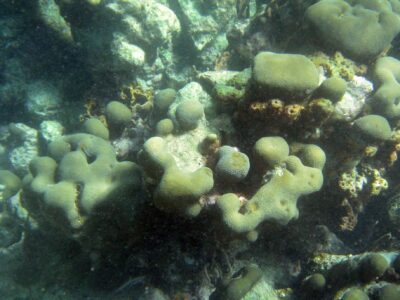
A beach on the Comoros Islands. Via UN Environmental Office Flickr, license (CC BY-NC-SA 2.0)
In the face of the ongoing climate crisis, Small Island Developing Nations (SIDs) have emerged as some of the most vulnerable and affected regions in the world. These nations are being confronted with escalating environmental challenges that threaten their very existence. Studies by the UN have shown that many island nations have witnessed an alarming increase in the frequency and intensity of climate-related disasters, including hurricanes, wildfires, unpredictable superstorms, and more. Though most of the climate-related problems have been exacerbated by larger, more affluent countries, in the face of these challenges, many SID nations are being forced to adopt innovative strategies for adaptation and resilience.
The SID islands, officially comprised of a group of 39 nations and 18 associate member states scattered throughout the Caribbean, Pacific Ocean, Bay of Guinea, and Indian Ocean, are particularly vulnerable to climate crisis due to their small size, geographical makeup, and historical sociopolitical factors. Rising sea levels, extreme weather events, the deterioration of marine ecosystems, and changing precipitation patterns have converged to push these nations to the brink. For instance, in 2020, Cyclone Harold battered the island nation of Vanuatu, leaving a trail of destruction in its wake and over 87,000 people displaced. And a report by UNICEF found that an estimated 761,000 children were displaced by storms in the Caribbean between 2014–2018 alone. These disasters not only cause immediate devastation but also disrupt critical infrastructure, leading to prolonged recovery periods.
In addition to extreme weather, one of the most pressing challenges SIDS face is rising sea levels. As global temperatures climb, polar ice caps melt, causing sea levels to surge. This phenomenon has resulted in devastating coastal erosion and inundation in many SIDs. For instance, the Carteret Islands community in Papua New Guinea were forced to abandon their homes altogether and relocate due to rising sea levels. Last year, during the international COP27 conferences, Tuvalu’s Foreign Minister Simon Kofe famously delivered a rousing speech on the unique challenges SID nations face while standing in ocean water up to his knees, marking a spot that was once pristine beachfront just a few years ago.
And the consequences could be complex. According to a 2022 World Bank report on the impact of the climate crisis on SIDs, “Along with the loss of homes, roads and other infrastructure, rising seas pose serious legal implications for small island states — including imperilling their territorial rights, access to resources, and raising questions about internal and external migration as residents seek higher ground.”
Additionally, ocean acidification, a direct result of increased carbon dioxide emissions, and pollution, pose a threat to SIDs, which typically rely heavily on marine resources. The decline in coral reefs and fish populations undermines food security and economic stability in these nations.
To combat these challenges, environmental activists in SID nations across the world are pushing for recognition, funding, and strategies for resilience and adaptation. They are investing in renewable energy sources such as solar and wind power to reduce their dependence on fossil fuels. Furthermore, they are implementing sustainable land-use practices and promoting ecosystem conservation to protect against erosion and maintain vital habitats.
The climate crisis is pushing Small Island Developing Nations to the brink, with rising sea levels, extreme weather events, and the deterioration of marine ecosystems posing existential threats. Recent disasters serve as grim reminders of the urgent need for collective action to combat climate change and support these vulnerable nations. As SIDs persevere in their efforts to adapt and build resilience, the world must stand together to ensure their survival in an increasingly uncertain climate. Find a series of stories discussing the unique challenges SID states face, plus the work different communities are putting in to save them, below.
Stories about SIDS nations grapple with the climate crisis
Marshall Islands demands justice for US nuclear testing in the Pacific
From 1946–1958, the US military dropped an estimated 318 explosive devices into the Pacific. This destroyed the environment and caused countless health issues for pacific islanders.
Why St. Lucia's hosting of a regional environmental event is significant
Participants have been doing stocktaking on the progress towards the “30×30” conservation target, a key element of the recently adopted Global Biodiversity Framework.
Pacific island nations want ‘ecocide’ to be an international crime
"The recognition of ecocide as a crime sends a powerful message: the destruction of nature will no longer go unpunished."
Australia-Tuvalu Falepili Union: Climate justice or defense treaty?
"Offering residence or citizenship rights to Tuvaluans, though a compassionate response, does not halt the inexorable rise in sea levels."
The effects of climate change on Trinidad's forests, rivers and seas
There is no doubt that climate change is already being felt in Small Island Developing States (SIDS) like the Caribbean.
Trinidad and Tobago is still coming to terms with this new level of heat
Climate change has increased temperatures and accelerated rates of ocean acidification and coral degradation.
Rethinking education in the context of sustainable development in Trinidad & Tobago
With little to no time to waste as climate change and other environmental issues accelerate at alarming rates, a comprehensive approach to empowering the next generation is needed.
How climate change is affecting food production in Guyana and St. Vincent & the Grenadines
While small island developing states (SIDS) like the Caribbean have attempted to ramp up food production to combat rising food costs, climate change has been hindering these efforts.
As the 2023 Atlantic hurricane season begins, the Caribbean looks back—and to the future
At COP27, the Loss and Damage issue was finally added to the agenda, but any sustainable positive impact on the Caribbean must go beyond this.
Human activities are adversely affecting Barbados’ gullies
Being a predominantly limestone island, gullies form an integral part of Barbados' culture, heritage, and biodiversity — but unsustainable human-influenced activities are leading to their degradation.
Caribbean journalists: ‘Shortfalls in climate reporting can be improved’
Caribbean journalists are finding it essential to report on climate justice issues, and ensure those who play a greater role in causing climate change are held accountable.
The Nuh Dutty Up Jamaica beach cleanup points to the need for greater public education
In the Caribbean, though beach clean-ups and plastic collections help to reduce the amount of plastic and raise the level of environmental consciousness, they never seem to be enough.
As Earth Day approaches, the Caribbean continues its struggle with a tidal wave of plastic, but remains hopeful
Despite the gloomy picture, it is fair to say that the Caribbean is fighting back against plastic, and is finding that in this effort, partnerships are effective.
As deep-sea mining decision still hangs in the balance, young Jamaican activists continue to campaign
Dishearteningly for the campaigners, the talks ended with no clear conclusion, despite strong and growing concerns. The International Seabed Authority Council meets again on July 10, a critical date.
Sandbar breach threatens Antigua & Barbuda’s Ramsar site
Codrington Lagoon is a wetland of International Importance under the Ramsar Convention but its sandbar integrity has been compromised by breaches that threaten the well-being of its ecosystems.
Coastal erosion redraws St. Vincent’s north-east coast
Over the past several years, as climate change impacts like hurricanes, droughts, floods and rising sea levels have taken their toll, the tiny Caribbean nation has had to take action.
The threat of bush fires in the Caribbean is a hot-button issue
The Caribbean's culture surrounding fire is contributing to the harsh and dangerous effects of the dry season.
Trinidad & Tobago looks to partnerships to help protect its coral reefs
Trinidad and Tobago's Institute of Marine Affairs recently partnered with government, private sector and community-based organisations to build its capacity in rehabilitating climate change-challenged coral reefs and seagrass beds.
Pacific voices call for urgent global climate action
Several initiatives highlight stories, narratives, and art performances that articulate the appeal of Pacific Island nations for a more decisive global action to reduce greenhouse gas emissions.
A deep dive: Young Jamaican climate activists collaborate to raise awareness of deep-sea mining
Young Jamaicans are worried that time is running out as the ISA works to finalise rules that might facilitate deep-sea mining as early as in the next few months.
Vetiver: One of Trinidad & Tobago’s neglected climate solutions
Vetiver is one of the greatest, cheapest, and most eco-friendly solutions to flooding, landslides, slope stabilisation and erosion control.






















